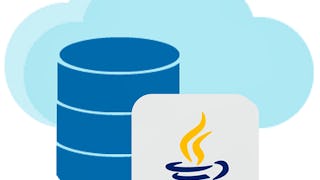Unlock the power of Object-Relational Mapping with our "Introduction to Hibernate" course. Designed for Java developers, students, and software engineers, this course provides the essential foundations and practical tools for working with Hibernate, the leading Java-based ORM framework. From understanding why ORM matters to mapping entities, managing relationships, and optimizing performance, you’ll gain the skills to simplify database access and write cleaner, more maintainable applications.



Recommended experience
What you'll learn
Explain ORM concepts and the benefits of Hibernate over JDBC.
Set up Hibernate in a Java project and map entities using annotations.
Implement CRUD operations, relationships, inheritance strategies, and advanced mappings.
Query databases using HQL, Criteria API, and optimize performance with caching and fetching strategies.
Skills you'll gain
Details to know

Add to your LinkedIn profile
April 2025
12 assignments
See how employees at top companies are mastering in-demand skills

There are 3 modules in this course
In this module, you will gain a foundational understanding of Java EE and the importance of following best practices. You will explore the significance of Java EE in enterprise application development, the benefits of adhering to best practices, and the principles of clean code and maintainability. This module sets the stage for building robust and maintainable Java EE applications.
What's included
14 videos4 readings4 assignments1 discussion prompt
This module delves into design patterns and effective architecture in Java EE. You will learn about various design patterns commonly used in Java EE, their roles, and how to apply them effectively. Additionally, you will explore best practices for designing scalable, modular, and maintainable Java EE architectures, along with patterns and anti-patterns to watch out for.
What's included
13 videos3 readings4 assignments
In this module, you will focus on best practices for error handling, logging, monitoring, and security in Java EE applications. You will learn how to create robust error handling mechanisms, use logging frameworks effectively, and implement monitoring and troubleshooting techniques. Additionally, you will explore security features in Java EE and best practices for implementing secure authentication and authorization mechanisms to prevent common security vulnerabilities.
What's included
13 videos3 readings4 assignments
Instructor

Offered by
Explore more from Software Development
 Status: Free Trial
Status: Free TrialLearnQuest
 Status: Free Trial
Status: Free Trial Status: Free Trial
Status: Free Trial Status: Free Trial
Status: Free TrialLearnQuest
Why people choose Coursera for their career





Open new doors with Coursera Plus
Unlimited access to 10,000+ world-class courses, hands-on projects, and job-ready certificate programs - all included in your subscription
Advance your career with an online degree
Earn a degree from world-class universities - 100% online
Join over 3,400 global companies that choose Coursera for Business
Upskill your employees to excel in the digital economy
Frequently asked questions
To access the course materials, assignments and to earn a Certificate, you will need to purchase the Certificate experience when you enroll in a course. You can try a Free Trial instead, or apply for Financial Aid. The course may offer 'Full Course, No Certificate' instead. This option lets you see all course materials, submit required assessments, and get a final grade. This also means that you will not be able to purchase a Certificate experience.
When you purchase a Certificate you get access to all course materials, including graded assignments. Upon completing the course, your electronic Certificate will be added to your Accomplishments page - from there, you can print your Certificate or add it to your LinkedIn profile.
You will be eligible for a full refund until two weeks after your payment date, or (for courses that have just launched) until two weeks after the first session of the course begins, whichever is later. You cannot receive a refund once you’ve earned a Course Certificate, even if you complete the course within the two-week refund period. See our full refund policy.
More questions
Financial aid available,


